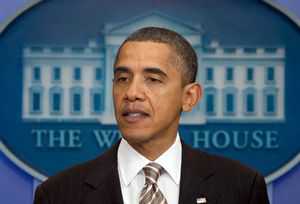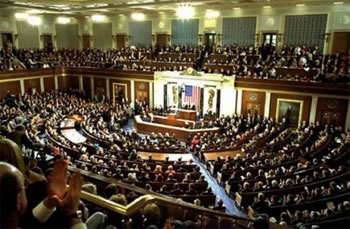
By Harut Sassounian
Publisher, The California Courier
Armenians are great believers in national unity. Actually, they are obsessed with it.
Yet, despite all the talk about unifying the Armenian people, writing fiery poems and singing patriotic songs about the benefits of unity, this most cherished dream remains elusive. Examples of failed attempts at unity are aplenty. Even in perilous times, Armenians have remained at odds and marched to the beat of different drummers.
However, as growing numbers of Armenians have come to realize that unity is critical for their national survival, they have managed in recent years to register modest successes in coalition building. Both the worldwide Hayastan All Armenian Fund and the U.S.-based United Armenian Fund consist of coalitions of major community organizations that carry out humanitarian work in Armenia and Artsakh (Karabagh).
Ironically, as the proponents of unity have proliferated, so have the schemes to unify Armenians, leading to potential new divisions on how to achieve unification! There are now several such initiatives in different parts of the world, ranging from bringing all Armenian organizations under a single umbrella, to groupings of Armenian professionals, compatriotic societies and Western Armenians. In a recent column, the mere reference to the need for a Diaspora-wide organizational structure generated an overwhelmingly positive response.
While all of the foregoing unity schemes merit serious consideration, and their advocates may end up joining hands, I wish to present some preliminary ideas which are the result of several years of reflection and serious discussions with respected individuals and community leaders in different countries.
My proposed scheme involves the establishment of a unity framework representing Armenians throughout the Diaspora, excluding those living in the Republics of Armenia and Artsakh who are already represented by their respective governments. The estimated seven million Diasporans would be entitled to elect one representative for every 20,000 Armenians living in a particular electoral district. Candidates meeting certain pre-established qualifications can nominate themselves to represent the 20,000 Armenians in their district. Voters have to be at least 18 years old, be of Armenian origin, and have a verifiable electronic or mailing address in their electoral district. Armenians meeting these criteria can participate in the election, regardless of their citizenship, country of origin, religious or political affiliation. The election would be organized on the basis of the democratic principle of “one man, one vote!”
In countries with a large Armenian population, several candidates would be elected to represent each group of 20,000 residents. While in sparsely Armenian-populated regions of the world, where 20,000 Armenians may be spread across several countries, one elected individual would represent the Armenian residents of those countries. Initially, there may be a low turn-out of voters. However, as the new structure gains strength and legitimacy, it will attract a greater number of participants. Elections do not have to be carried out simultaneously throughout the Diaspora. They could be held initially in one region to test the feasibility of the electoral procedures. In this regard, I wish to welcome the recent decision by French-Armenian community leaders to hold nationwide elections in France next year to select their representatives.
It is important to note that only those elected by the public-at-large can truly state that they represent the Armenians residing in their district, while other community leaders can only claim to represent the members of their own organization! Consequently, the collective body of 350 representatives from all the electoral districts throughout the Diaspora can officially claim to represent Armenians worldwide, outside of Armenia and Artsakh.
This collective body will have an elected chairperson or Speaker, committees and subcommittees dealing with culture, language, religion, education, foreign affairs, rights of Armenian minorities, relations with Armenia and Artsakh, Genocide recognition, demands for redress from Turkey, and financial matters.
This 350-member body shall meet periodically and make decisions on the basis of majority vote. On certain critical issues, the body could adopt decisions by a two-thirds majority. Its decisions would reflect the views of the entire Diaspora, not just a particular organization. The existing Armenian organizations will continue to function with no hindrance or competition from this new transnational entity. In fact, the community organizations could expand their reach and increase their clout by lobbying the elected representatives of this new collective body to adopt their respective agendas. Since today’s Diaspora leaders are prominent members of their communities, it would not be surprising to see many of them elected to this new entity by popular vote.
A key advantage of the new structure is the likelihood of its recognition by the United Nations and other regional and international organizations as a non-governmental organization (NGO) with the right to represent and speak on behalf of Diaspora Armenians.
The representatives of the new entity in a particular city or country can also interact with local authorities on behalf of all Armenians residing in that region. For example, the recent dispute among Armenian-Americans about which group should represent the community in a meeting with Secretary of State Hillary Clinton could have been easily avoided if the proposed transnational body were in existence. Furthermore, Armenian government officials as well as foreign leaders would know whom to call when they need to contact the elected representatives of the Diaspora.
The representatives of this new structure could also endorse candidates in local or national elections in different countries. This role becomes crucial in key elections or when multiple Armenian candidates run for the same office and split the Armenian vote, resulting in the defeat of all Armenian candidates. Those endorsed by this body would likely enjoy the support of the majority of local voters.
Before attempting to implement such an ambitious initiative, several important steps need to be undertaken:
1) A team of researchers would need to study similar schemes created by Israel, Greece, Lebanon, Italy, and other countries to benefit from their experience. Such a study could be carried out by the USC Institute of Armenian Studies which would then formulate the best mechanisms to conduct elections worldwide, including estimating the number of voters in each country, qualifications of voters and candidates, and measures to prevent voter fraud. The Institute could also propose significant details about the structure and function of the collective body (meeting procedures, committees and subcommittees, recall procedures, term limits, electing chairs and vice chairs).
2) Before any public announcement is made about the establishment of the unity framework, the organizing committee should contact the leaders of influential Diaspora organizations to acquaint them with the new initiative and welcome their suggestions and support.
3) The organizing committee should also brief government officials in Armenia and Artsakh about the objectives of the planned organization, and secure their tacit support without their actual involvement. After the newly-elected body becomes functional, its authorized representatives would interact with officials of both Armenia and Artsakh on a regular basis. It is critical to maintain the independence of the Diaspora-wide body, in order to shield Armenian officials from pressure by foreign powers to influence the decision-making of the new entity.
Once established, this transnational organization would create for the first time a representative body in the Diaspora with political and economic clout capable of promoting Armenian interests, preserving cultural values and defending Armenian rights worldwide. |










